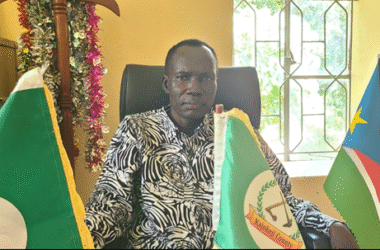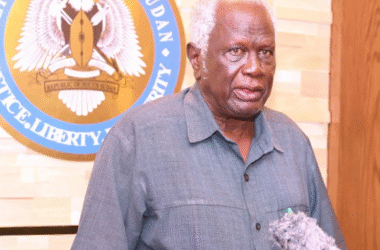By Bida Elly David
South Sudan government and the United Nations Immunization Scientific Education Fund (UNICEF) yesterday launched a scene to improve education system in the country.
The National Ministry of general education and instructions and UNICEF has initiated a national consultative program aimed at transforming education in the Republic of South Sudan.
The scene is to create sustainable learning environment to learners, and address the impeding challenges facing the country’s education sector.
The meeting was attended by number of participants such as representatives from the United Nations Children Education Funds (UNICEF), the state Ministry of Education, head teachers of schools as well as their learners, delegates from persons with disability among others.
Speaking during the event, Awut Deng Achuil, the National Minister of General Education and Instructions said that the country has made progress amid improving education but still being hindered.
She vowed to bring into book those who work towards violating education constitution by excommunicating children, youth and adults from attaining learning.
“South Sudan has made significant progress in Education but still face huge challenges and we must do what it takes to overcome these challenges and achieve SDG 4 since the right of education is enshrined in the transitional constitution 2011 yet free education is not free where many children are denied their rights to education. We will not allow those who violate the constitution of general education 2012 to go unpunished. We must encourage all children, youth and adults to go to school and start learning including the estimated 2.8 million out of school,” she said.
“We are going to give our stakeholders more opportunities to contribute and shape our national commitment towards promoting education in the Country. South Sudan is required like every other member States of the UN pronouncing its commitment towards meeting plans such as inclusive equitable healthy and safe schools, learning skills for sustainable development, teachers and teaching profession, digital learning and transformation and lastly financial education,” she added.
Minister Awut said that the Ministry of General education and instructions remains committed towards promoting the education sector to a better level.
On her part, Sara Beysolow Nyanti, resident coordinator for the United Nations Development System in South Sudan termed education as a fundamental right for every child regardless of whom they are.
She said that lack of quality education creates risk for building lasting peace for sustainable development.
“We must make it our mission to ensure that every South Sudanese child has access to quality education. Lack of quality education means, young adults are not acquiring requisite skills and have few opportunities to earn a livelihood” Nyanti said.
Sara acknowledged the 8.4% increase of current budget allocation to education although it is not adequate enough to remedy some of the needs within the education sector.
“I acknowledge the current increase in budget allocation to education Ministry from about 5% in 2019-2020 to 8.4% in 2022 but still, it is not adequate. We must allocate more resources for education as the Country is having more than 70% young population below the age of 29 years and that is an international bench mark too. We must ensure that the allocated annual budget is received by the education Ministries and spent prudently to address prioritized needs’’ she said.


